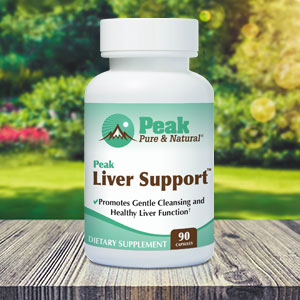Get Easy Health Digest™ in your inbox and don’t miss a thing when you subscribe today. Plus, get the free bonus report, Mother Nature’s Tips, Tricks and Remedies for Cholesterol, Blood Pressure & Blood Sugar as my way of saying welcome to the community!
16 medical tests to expect in your 60s and beyond

Certain birthdays are not just personal milestones. They’re significant at your doctor’s office, too.
At 50 (or 45, based on new recommendations), we’re signed into the colonoscopy club.
No fun, for sure, but just remember the old adage: an ounce of prevention is worth a pound of cure.
But what’s next? Lots — and are there any you no longer have to endure after 60?
Good question…
Preventative medical testing
There are 16 medical tests that the United States Preventive Services Task Force and other specialty groups recommend for those aged 60 and beyond, to catch the earliest possible signs of specific health problems, including a few that seniors are at higher risk for.
Here’s what you need to know about them…
#1 – Blood pressure screening
High blood pressure is often called the “silent killer.” It can go undetected for years, and left untreated, can lead to heart attack, stroke, kidney disease and increased risk of dementia.
Regular screening is important, even if your blood pressure has always been normal, but you may need to check it more often if you have other risk factors, such as a high-salt diet, lack of physical activity, excessive alcohol consumption, or being overweight. Other risk factors include family history of hypertension or certain medical conditions like diabetes or chronic kidney disease.
If you are thin or overweight, be sure those taking your blood pressure use the correct size cuff, or the reading could be too low or even falsely high.
#2 – Weight
You may wonder why you have to step on the weight scale at every doctor visit.
No matter your age, weight gain can increase the risk of multiple health issues, including high blood pressure, type 2 diabetes and heart disease. But with age, these conditions carry even higher mortality rates.
There’s also a sneaky weight connection to cancer: Excess weight is linked to 40% of cancers in the U.S., while unintentional weight loss is also a sign of four types of cancers.
#3 – Blood sugar testing
The risk of type 2 diabetes increases with age, especially for those 65 and older. Because of this and the dangers of living with high blood sugar (including nerve damage, kidney disease, eye problems and increased risk of heart disease), the American Diabetes Association recommends taking a fasting blood sugar test at least once every three years.
If you have additional risk factors for high blood sugar, you should be tested more often. These risk factors include being overweight or physically inactive and a family history of diabetes.
#4 – Thyroid hormone panel
Because symptoms of thyroid problems are easily missed or attributed to another issue, it’s important to have your thyroid checked to rule out disease. The American Thyroid Association recommendation is a full thyroid screening at least once every five years, especially for women.
Because your thyroid produces hormones that affect your metabolism, problems with the gland can lead to weight fluctuations, hair loss, fatigue, depression and other lesser-known symptoms.
#5 – Colorectal cancer screening
Colorectal cancer screening has two goals: detecting precancerous polyps (abnormal growths) in the colon or rectum, so that they can be removed before they turn into cancer, and finding colorectal cancer early, when treatment works best.
Screening is recommended starting at age 45 and continuing until age 75. This can involve:
- A colonoscopy every 10 years
- A sigmoidoscopy every five years, plus fecal occult blood testing every three years
- Or fecal occult blood testing every year
While there are different risks and benefits to each test, the most important thing is to simply get screened.
#6 – Prostate cancer screening
Men aged 55 to 69 should discuss the pros and cons of prostate cancer screening (measuring prostate-specific antigen or PSA levels) with their doctor.
While screening can lead to early detection of aggressive prostate cancers, leading to timely treatment, potentially reducing mortality, risks include false positives, leading to unnecessary biopsies and anxiety. In 2024, a urine test was developed that may make unnecessary biopsies a thing of the past for most men.
PSA testing is not recommended for men 70 and older.
#7 – Breast cancer screening
Aging means a higher risk of breast cancer. In fact, only approximately 4% of women diagnosed with breast cancer in the U.S. are younger than 40, and the majority of breast cancers are diagnosed after age 50.
Current recommendations are that women have a mammogram every one to two years, starting at age 40 or 50. Because not all experts agree on timing, be sure to talk to your doctor about how often you should be screened for breast cancer, especially if there is family history of the disease.
#8 – Gynecological screening
Menopause doesn’t mean visits to your gynecologist end. Women over 60 can develop vaginal or cervical cancer and experience other issues, such as incontinence and urinary tract infections.
Pelvic exams with a Pap smear are recommended every 3 years until age 65. An HPV test for human papillomavirus (which can cause genital warts and cervical cancers) should be performed every 5 years during this time.
Once you’ve hit 65 and have had several negative Pap smears in a row, your doctor may recommend stopping Pap screening. You may also be exempt if you’ve had a complete hysterectomy for a noncancerous condition such as fibroids.
# 9 – Vision test
Aging can also mean an increased risk of vision problems due to age-related macular degeneration, diabetic retinopathy, cataracts and glaucoma. That’s why regular eye exams are crucial for preserving healthy vision in your senior years.
The American Academy of Ophthalmology recommends having a complete eye exam every year or two after age 65, so that you can catch problems early when they are most treatable.
#10 – Hearing test
Over a quarter of people between the ages of 65 and 74 experience disabling hearing loss. Fortunately, most of that hearing loss is treatable, making early testing key.
If you have any symptoms of hearing loss, be sure to get tested right away. Over 60, it’s also a good idea to have a baseline hearing test performed, so that you can be rechecked every one to two years to catch hearing loss before it can progress.
#11 – Osteoporosis screening
Low bone density increases the risk of fractures. And when you consider that for seniors, fractures can be more deadly than cancer, it’s easy to see why osteoporosis screening is a must.
By age 65, women should have bone density screening, also known as a DXA scan. They often start as early as 50, around the time a woman goes through menopause, when bone mass can begin to rapidly plummet.
Additional risk factors include early menopause, surgical removal of the ovaries, previous fracture, high body weight, low body weight, a family history of osteoporosis or taking certain medications. Once bone density screening begins, your physician will likely want you to have a DXA scan every two years.
#12 – Cholesterol screening
High cholesterol levels have been linked to an increased risk of heart attacks and strokes. This makes keeping track of your HDL (‘good’cholesterol) and LDL (‘bad’ cholesterol) numbers a simple step to avoid the worst. An advanced lipid test may give even more insight into your cardiovascular risk.
When cholesterol is elevated, doctors will likely prescribe statins. Unfortunately, some reports have stated that as many as one in two patients stop taking them, reduce the dose or take them irregularly because of side effects, including muscle pain.
The good news is that a growing body of evidence is demonstrating that omega-3s from fish oil are the most effective way to improve cholesterol levels — with no statin side effects. Diet can also help lower cholesterol.
#13 – Aneurysm screening
You might also want to ask your doctor about your risk of an abdominal aortic aneurysm (AAA). It’s recommended that men between the ages of 65 and 75 who have smoked at any time in their lives have a one-time ultrasound to screen for AAA. Women may need to be screened if they have a strong family history of either AAA repair or death due to rupture.
#14 – Examination for skin cancer
While you may not be exposed to as much sun as in your younger years, it’s important to remember that skin cancers can take decades to develop. Check your body at home regularly for moles with these features, and see your dermatologist immediately if you notice any…
- A = Asymmetry or irregular shape.
- B = Borders that are uneven.
- C = Colors that vary within the same mole.
- D = Diameter that’s larger than the width of a pencil eraser.
- E = Evolution or change over time in size, shape, or color.
According to Dr. Katherine Brag, a dermatologist at Harvard-affiliated Beth Israel Deaconess Medical Center, skin checks every two to three years are sufficient for 80% of us.
However, in certain cases, you should be screened more often. Heightened risks include a family history of atypical moles or melanoma, a previous skin cancer, inflammatory bowel disease, a genetic predisposition (such as a BRCA gene mutation) or a history of tanning bed use or blistering sunburns (three before age 15).
Check out this link for the lowdown on skin cancers, including types, treatments and staying safe.
#15 – Dental exam
Caring for your teeth doesn’t just keep them pearly white. It also helps ward off heart problems. In fact, research has shown that seeing your dentist may help keep your arteries from narrowing.
So be sure to have a dental exam every 6 to 12 months. At home, use an electric toothbrush to improve your brushing regimen and help prevent gum disease. Brush and floss twice a day.
#16 – Screening for Hepatitis C
Hepatitis C is a viral infection that primarily affects the liver, causing inflammation and damage. As many as one in three people living with the virus is unaware they are infected because 75-85% of hepatitis C patients don’t have symptoms. Untreated, the virus can cause chronic liver disease, cirrhosis and liver cancer.
Because of this, the CDC recommends one-time universal testing for all adults 18 and older. Periodic screening is recommended for those with ongoing risk factors, such as current or past injection drug use, and for those with certain medical conditions
Baby Boomers — those born between 1945 and 1965 — are five times more likely to have hepatitis C. That’s because they were born before tests that screened blood and medical equipment for infection were commonplace. Additionally, testing for Hep C infection was not available until 1990.
If you haven’t been screened for hepatitis C, talk to your doctor.
Editor’s note: Did you know that when you take your body from acid to alkaline you can boost your energy, lose weight, soothe digestion, avoid illness and achieve wellness? Click here to discover The Alkaline Secret to Ultimate Vitality and revive your life today!
Sources:
Medical Tests for Your 60s and Up — WebMD
Screening for Colorectal Cancer — CDC
Breast Cancer Risk Factors — CDC
Breast Cancer Risk Factors: Age — Susan G. Komen
Pelvic exam — Cleveland Clinic
Eye Health Information for Adults Over 65 — American Academy of Ophthalmology
How often should I get my hearing tested? — Healthy Hearing
Hepatitis C — Cleveland Clinic
Screening advice that’s not just skin deep — Harvard Health Publishing














